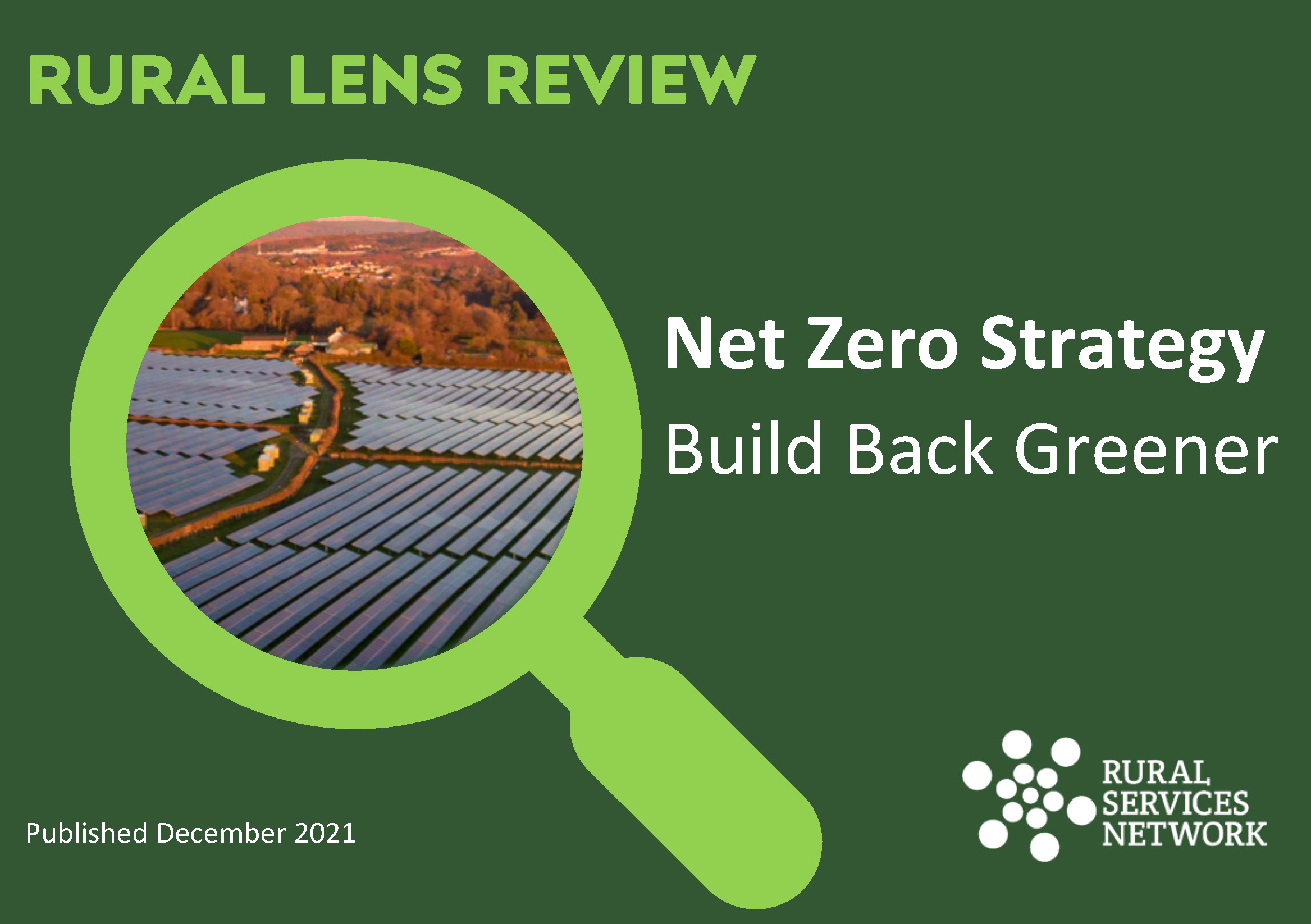T: 01822 851370 E: [email protected]
06.12.2021
Net Zero Strategy Rural Lens
In October 2021 the Government published its Net Zero Strategy, setting out (by sector) the policies and measures intended to keep the UK on its pathway to net zero by 2050. It outlines policies and measures for the period up to 2035. Sitting underneath it are other sectoral strategies which have been or will be published e.g. Heat & Buildings Strategy and Transport Decarbonisation Plan.
This Rural Lens document has been commissioned from Rural England CIC by the Rural Services Network (RSN). It seeks to:
- Summarise the main policies and measures covered in the Net Zero Strategy;
- Identify rural considerations that arise from the following policies or measures relating to:
- Transport
- Power Supply
- Fuel Supply and Hydrogen
- Heat and Buildings
- Natural Resources, Waste and F Gases
- Greenhouse Gas Removal
- Flag any rural references (or the lack of them) within the Strategy document.
At a glance
Rural Services Network’s thoughts on the Net Zero Strategy:
- Rural areas will want to ensure that they benefit proportionately from the expected growth of employment in green sectors and in business that transition to net zero.
- The big unknown is the extent to which Strategy measures will reach or target rural transport networks or infrastructure when implemented.
- A majority of onshore energy generation from renewable sources takes place in rural areas, so debate about the pros (such as job opportunities) and cons (such as environmental impacts) of its expansion will likely play out most often in rural areas.
- The Strategy says that the transition “must be affordable and achievable for all” and that the costs homeowners will incur should “fall fairly across society”. This is helpful, but its implementation will need to ensure it is affordable, achievable and fair in rural areas with their particular characteristics.
- References to taking a place-based approach and working with local government are potentially a useful hook It will be important to ensure that this specifically includes rural places and their challenges. It would seem helpful if there was a dedicated rural representative on the planned Local Net Zero Forum.




